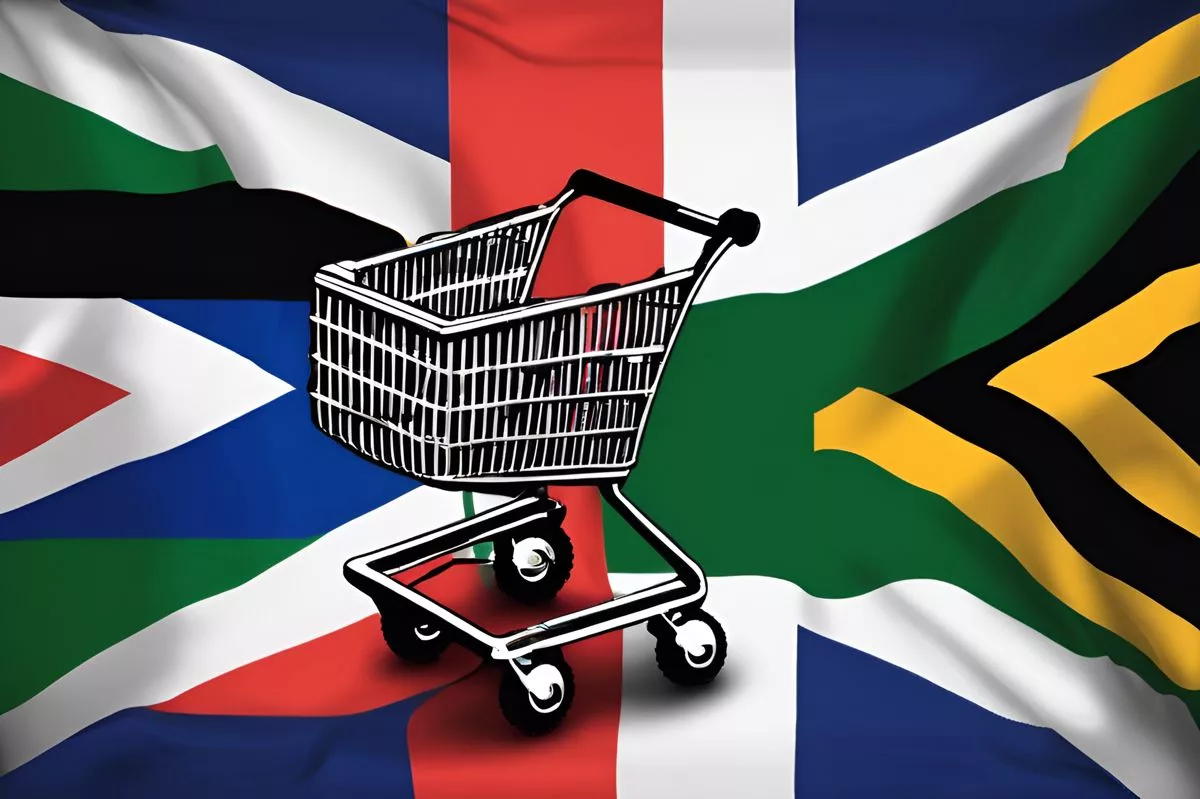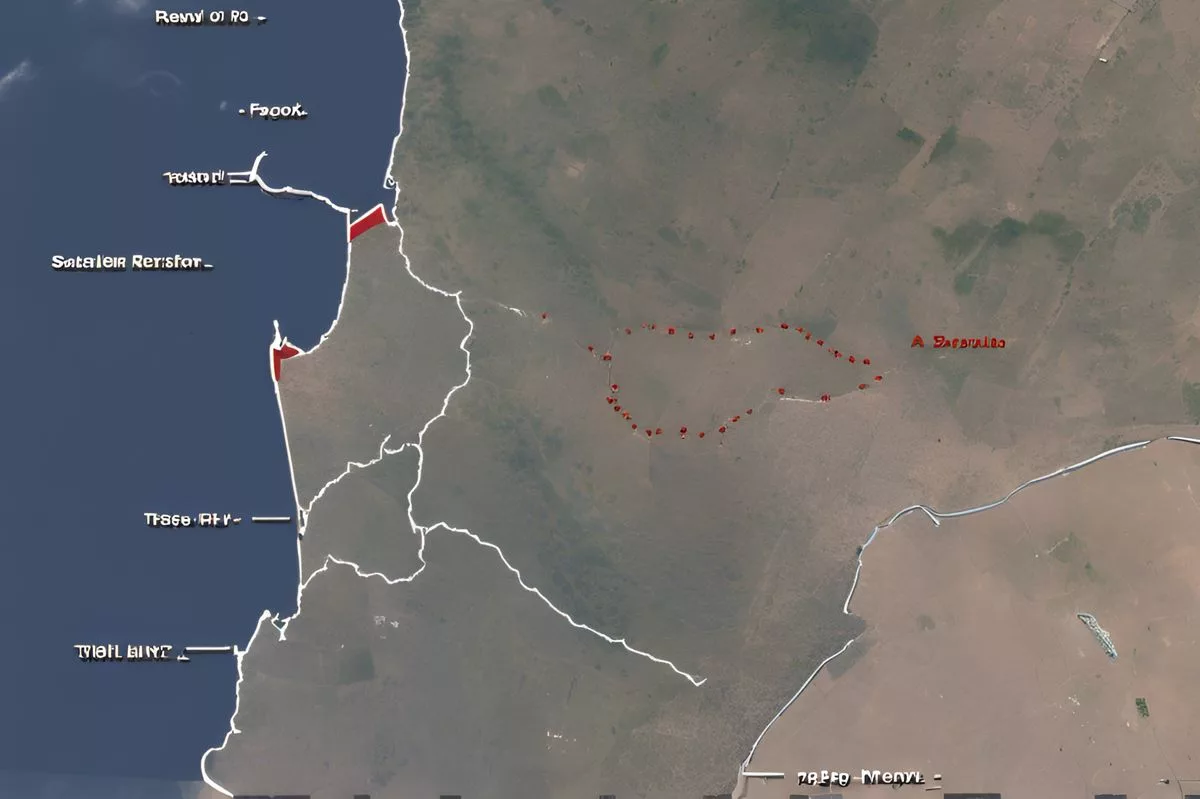In South Africa, Amazon and local e-commerce giant Takealot are engaged in a battle for supremacy in the rapidly growing e-commerce market, which is projected to reach $72bn within two years. Amazon’s business model, which provides a highly personalized shopping experience, has won over many South African consumers, while Takealot’s existing foothold in the local market has made it a formidable competitor. However, with the launch of Amazon’s South African website imminent, industry experts predict a challenging time for Takealot. The competition between these two e-commerce titans signals a new phase in the South African e-commerce sector marked by intense rivalry and innovation.
The emerging e-commerce scenario in South Africa is witnessing a battle between Amazon and local e-commerce powerhouse, Takealot, with Amazon expected to launch its South African website soon. The e-commerce market landscape in South Africa is projected to reach $72bn within the next two years and is predicted to align with the global uptake by 2024, instigated by the current growth. Amazon’s business model provides a highly personalized and satisfying shopping experience, catering to evolving consumer behaviour. This competition signals a new phase in the South African e-commerce sector.
Section 1: Overview of the E-commerce Scenario
The online shopping terrain of South Africa is experiencing a significant transformation. Despite the absence of a localized platform, Amazon, the American giant of e-commerce, has managed to establish a dedicated South African customer base. This accomplishment has made Amazon’s American platform the third most frequented e-commerce site within the region. Meanwhile, the local e-commerce powerhouse, Takealot, has further strengthened its standing since its inception in 2011.
The vast array of products and personalized amenities offered by Amazon have captivated South African consumers. Concurrently, Takealot’s existing stature and knowledge of the local market have fortified its position within the e-commerce sector. However, with Amazon slated to launch its South African website soon, questions regarding the future of Takealot’s standing have been raised.
Section 2: The E-commerce Market Landscape
At present, the e-commerce milieu of South Africa is witnessing a rise in online shopping, surpassing in-store spending. This growth aligns with the rate seen in cities within developed economies such as Sydney, San Francisco, and Los Angeles. As per the Payments and Commerce Market Intelligence (PCMI), the digital commerce industry across South Africa, Egypt, Kenya, Morocco, and Nigeria is projected to reach an astounding $72bn within the next two years.
Andy Higgins, the Managing Director of the Bob Group, predicts online retail in South Africa will experience an upturn and align with the global uptake by 2024, instigated by the aforementioned growth. This proclamation indicates a promising future for the e-commerce sector within the region.
Section 3: Takealot and Amazon: The Battle Begins
Takealot, known for its widespread user base, distribution centers in Johannesburg, Durban, and Cape Town, and a workforce of over 2000 employees, is the reigning e-commerce champion in South Africa. However, with Amazon’s South African platform expected to be launched soon, industry experts anticipate a challenging time for Takealot.
On the face of it, Takealot seems equipped to rival Amazon with its similar pricing and distribution models. But, the real difference lies in the details. Amazon triumphs with a broader product assortment, customized services, and advanced customer analytics – a potent mix that provides it with a competitive advantage.
Damon Buss, Equity Analyst at M&G Investments, attributes Amazon’s success to its systematic strategy for entering new markets. Amazon gradually gains supremacy in the local e-commerce sector by providing a broader array than its rivals and customizing its services to individual customers. Buss envisages that Amazon will reign over the South African e-commerce industry within five years.
Section 4: Amazon’s Winning Strategy and Consumer Behaviour
Amazon’s business model revolves around a continuous process of introducing new products and understanding customer preferences. By enticing consumers with new products and fine-tuning its services based on their preferences, Amazon ensures a highly personalized and satisfying shopping experience.
So, what items are South Africans purchasing online? As per Statista, clothing tops the list, accounting for 47% of online purchases. This trend demonstrates the evolving consumer behaviour, underscoring the convenience and comfort of online shopping.
Section 5: The Future of E-commerce in South Africa
The impending face-off between Amazon and Takealot is not simply a clash of two e-commerce titans but also a testament to the evolving retail landscape. This narrative will not only influence the future of e-commerce in South Africa but also provide valuable insights into consumer behaviour, market shifts, and the impact of digital transformation.
As the South African launch of Amazon looms, it’s evident that the landscape of South African e-commerce is on the brink of a massive shift. Whether Takealot will successfully navigate this challenge or Amazon will consolidate its dominance is yet to be determined. However, this competition signals a new phase in the South African e-commerce sector – a phase characterized by intense rivalry, innovation, and a focus on customer services.
1. Who are the major players in the e-commerce market in South Africa?
The major players in the e-commerce market in South Africa are Amazon and local e-commerce giant Takealot.
2. What is the projected size of the e-commerce market in South Africa?
The e-commerce market in South Africa is projected to reach $72bn within the next two years, as per the Payments and Commerce Market Intelligence (PCMI).
3. How has Amazon established a customer base in South Africa despite the absence of a localized platform?
Amazon has established a customer base in South Africa by providing a highly personalized shopping experience and catering to evolving consumer behavior through its American platform, which is the third most frequented e-commerce site within the region.
4. What advantages does Amazon have over Takealot in the e-commerce market in South Africa?
Amazon has advantages over Takealot in the e-commerce market in South Africa such as a broader product assortment, customized services, and advanced customer analytics, which provide it with a competitive advantage.
5. What is Amazon’s winning strategy in the e-commerce market in South Africa?
Amazon’s winning strategy in the e-commerce market in South Africa revolves around a continuous process of introducing new products and understanding customer preferences, ensuring a highly personalized and satisfying shopping experience.
6. What does the future of e-commerce in South Africa look like?
The future of e-commerce in South Africa looks promising, with projections indicating that the digital commerce industry across South Africa, Egypt, Kenya, Morocco, and Nigeria is projected to reach $72bn within the next two years, and align with the global uptake by 2024. With Amazon’s impending launch in South Africa, the e-commerce sector is expected to experience intense rivalry, innovation, and a focus on customer services.












